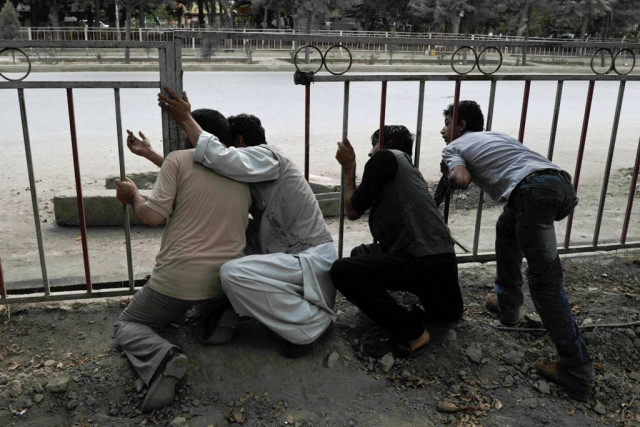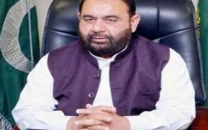US 'out of line' on terror remarks: Foreign Office
Panetta expresses concern about the Haqqanis ability to attack US troops and 'escape back to Pakistan'.

A day after a 19-hour Taliban assault in Kabul, Panetta had expressed frustration that the Pakistani government has failed to crack down on Haqqani network militants, who Washington suspects were behind the attack.
"I'm not going to talk about how we're going to respond. I'll just let you know that we're not going to allow these kinds of attacks to go on," he said.
But foreign ministry spokeswoman Tehmina Janjua said Panetta's comments were not in keeping with the two countries' allied anti-terrorism efforts.
"These remarks are out of line with the kind of cooperation that exists between the two countries. Terrorism and militancy is a complex issue," she said.
"It requires cooperation between all the countries concerned. Pakistan's cooperation in this regard has been persistent."
"We have identified our position on all these issues. Pakistan and US are strategic partners and both sides need to discuss all issues in a cooperative manner," Janjua added.
Pakistani officials said it was the responsibility of US-led forces to crack down on militants when they enter Afghanistan.
"We are using all our resources to fight terrorism. As far as these issues like Haqqani network launching attacks from Pakistani territory is concerned, has any proof ever been given?" said a senior Pakistani military official who asked not to be named.
A senior Pakistani government official involved in defence policy said the South Asian country, reliant on billions of dollars in US aid, was doing all it could to stop militants from crossing the border to Afghanistan.
"But if the militants are doing something inside Afghanistan, then it is the responsibility of the Afghan and Western forces to hold them on the borders," he said.
"They let everyone go scot-free on their side (of the border) and then they say Pakistan is not doing enough."
Suspected ties to the Haqqanis
Panetta, who was CIA director until July, has long pressed Islamabad to go after the Haqqanis, perhaps the most feared of the Taliban-allied insurgent factions fighting US-led Nato and Afghan troops in Afghanistan.
Pakistan's Directorate of Inter-Services Intelligence has long been suspected of maintaining ties with the Haqqani network, cultivated during the 1980s when Jalaluddin Haqqani was a feared battlefield commander against the Soviet Union in Afghanistan.
Pakistan says it has no links to the group.
Panetta said he was concerned about the Haqqanis' ability to attack American troops and then "escape back into what is a safe haven in Pakistan."
"And that's unacceptable," Panetta said.
The CIA has had success targeting militants in Pakistan using pilotless drones. Last month, Admiral Mike Mullen, the top US military officer, cited progress curtailing Haqqani movements within Afghanistan.
Going after Haqqani could be risky for Pakistan's army, which is already stretched fighting Taliban militants determined to topple the US-backed government.
Haqqani himself is believed to have thousands of seasoned fighters, and he is revered by other militant groups who would likely defend him against any offensives.
US and Pakistani officials recently noted strong counter-terrorism cooperation after senior al Qaeda operative Younis al Mauritani was captured in Pakistan this month.
Comments from both sides suggested the allies were starting to put behind them the bitterness caused by bin Laden's death.
After the secret raid, the number of US military trainers in Pakistani, who had numbered in the hundreds a year ago, were reduced to literally a couple of hand-fulls earlier this year.
Some US officials in Washington said relations were still heavily strained.
"The bilateral relationship is still in deep trouble but the atmospherics are a bit better. Name calling has largely ended for now," said former senior CIA analyst Bruce Riedel, who has advised Obama on policy in South Asia.
"Distrust has not gone away, nor has the fundamental difference in the approach to terror.



















COMMENTS
Comments are moderated and generally will be posted if they are on-topic and not abusive.
For more information, please see our Comments FAQ